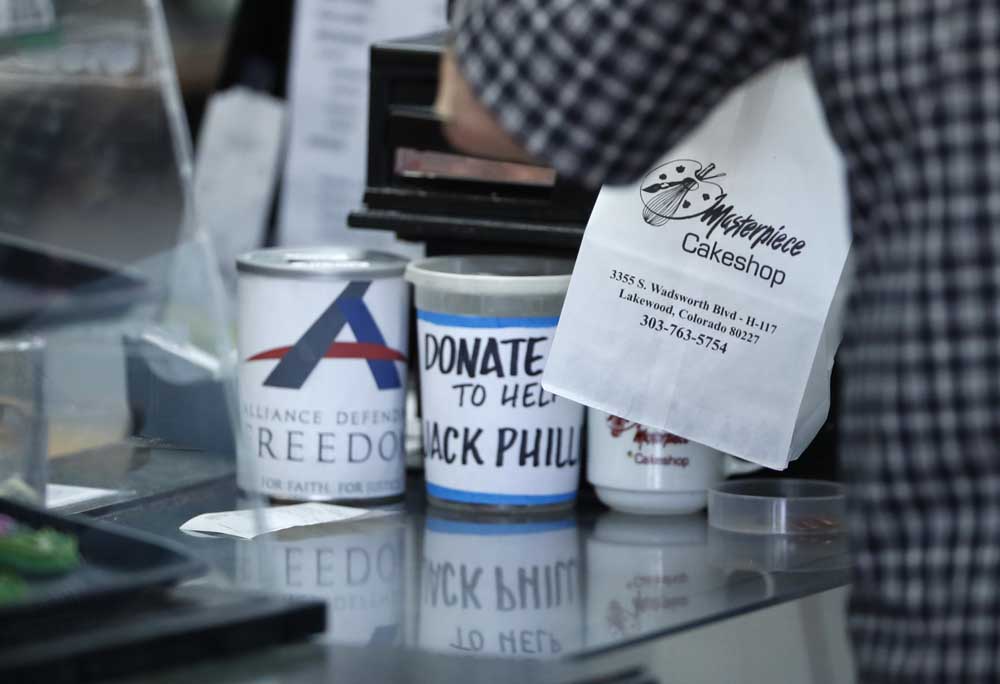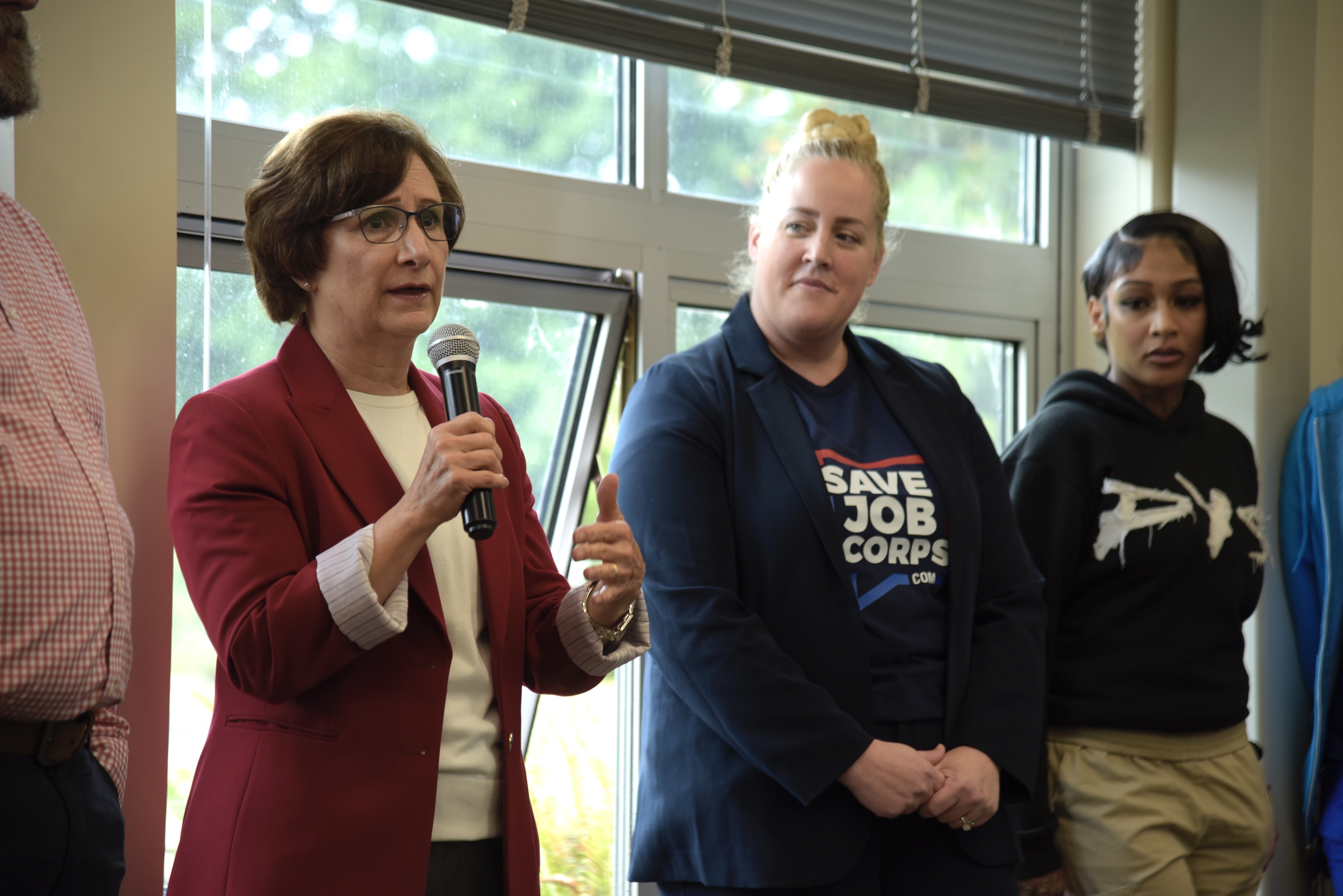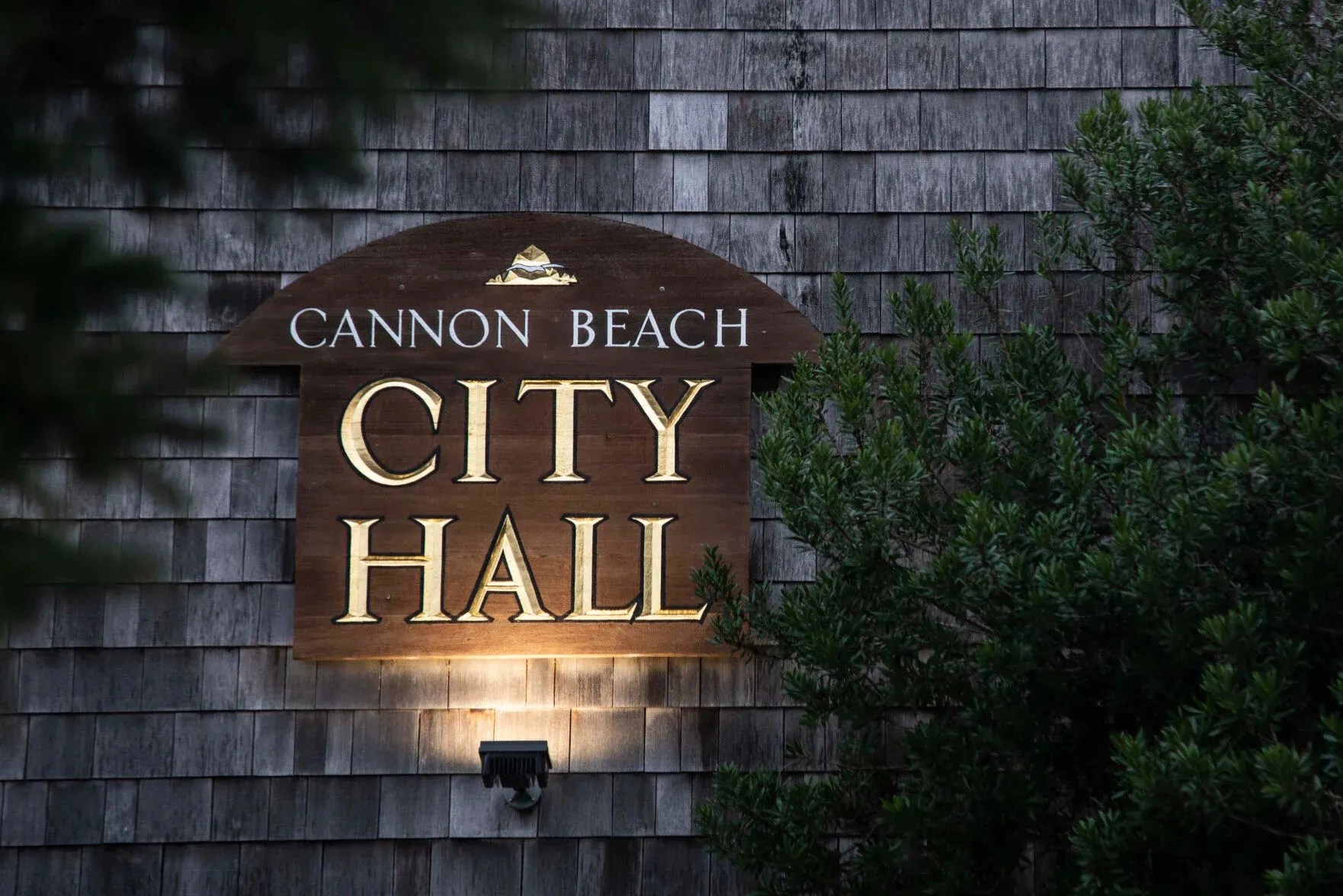Colorado cake decision likely won’t settle same-sex bias case in Oregon
Published 5:40 am Tuesday, June 5, 2018

- Donation tins sit next to the cash register at Masterpiece Cakeshop in Lakewood, Colo.
A U.S. Supreme Court ruling Monday in favor of a Colorado baker who refused to sell a custom wedding cake to a gay couple because of his religious beliefs is unlikely to resolve a similar case that has been appealed to the Oregon Supreme Court.
The opinion by Justice Anthony Kennedy determined that members of the Colorado Civil Rights Commission showed anti-religious bias toward Jack Phillips, owner of Masterpiece Cakeshop, in its enforcement of anti-discrimination laws.
But the court’s decision stopped short of resolving whether merchants who have religious objections to gay marriage can refuse commercial services to same-sex couples.
“Importantly, the Supreme Court today protected the core principles of our nondiscrimination laws, expressly recognizing that states can seek to prevent the harms of discrimination in the marketplace, including against LGBT people,” said Diane Goodwin in a joint statement from Basic Rights Oregon and the ACLU of Oregon. “The court did not give businesses the broad right to discriminate.”
The Supreme Court ruled 7-2 in favor of Phillips’ argument that Colorado civil rights commissioners made statements that showed anti-religious bias. Phillips declined to sell a custom-made cake to Charlie Craig and Dave Mullins for the couple’s commitment ceremony. The Supreme Court opinion departed from Justice Kennedy’s history of supporting gay rights, including the court’s 2015 ruling legalizing gay marriage nationwide.
At the time that Phillips refused to sell the cake to Craig and Mullins in July 2012, same-sex marriage was not yet legal in Colorado.
The Oregon Court of Appeals in December upheld a $135,000 fine by the Oregon Bureau of Labor and Industries against Melissa and Aaron Klein, owners of Gresham’s Sweet Cakes by Melissa, for refusing to sell a wedding cake to lesbian couple Rachel and Laurel Bowman-Cryer in 2013.
The Kleins have sought review of their case by the Oregon Supreme Court, which is still under consideration.
The U.S. Supreme Court’s ruling is unlikely to influence the outcome of the Sweet Cakes case because it applied narrowly to the details of the Colorado case, said Paul Thompson, an attorney for the couple.
“I believe the Colorado case was more Justice Kennedy saying that the Colorado Civil Rights Commission was not neutral and was more animus against the baker,” Thompson said.
Attorney Adam Gustafson, who, along with national religious law firm First Liberty Institute, represents the Kleins, disagreed with Thompson’s analysis.
“The Oregon Bureau of Labor and Industries decision against the Kleins was tainted by the same anti-religious bias that caused the U.S. Supreme Court to rule for Masterpiece Cakeshop on free exercise grounds,” Gustafson said.
Gustafson was referencing Facebook posts by Oregon Labor Commissioner Brad Avakian. Court documents show that Avakian posted a link to a KGW article about the case and wrote: “Everyone has a right to their religious beliefs, but that doesn’t mean they can disobey laws that are already in place.”
Jim Oleske, a professor at Lewis & Clark Law School who filed a friend-of-the-court brief in the case, said the kind of bias the Kleins are alleging is different from the antireligious statements by members of the Colorado civil rights commissioners and would have a higher standard of proof.
Meanwhile, the U.S. Supreme Court is scheduled to consider today whether to review a case in Washington state in which florist Barronelle Stutzman refused to sell flowers to a same-sex couple for their wedding. The Washington Supreme Court ruled unanimously in February 2017 that Stutzman violated the state’s anti-discrimination laws.
If accepted for review by the court, that case could decide the question of whether merchants who have religious objections to gay marriage can refuse commercial services to same-sex couples, Oleske said.
Oregon is one of 19 states, along with Washington, D.C., with nondiscrimination protections in public accommodations law specifically based on a person’s sexual orientation or gender identity. The Oregon Equality Act was signed into law in 2007, giving LGBTQ Oregonians nondiscrimination protections in employment, housing, public accommodations and other categories.
Oregon U.S. Sens. Ron Wyden and Jeff Merkley blasted the Supreme Court ruling and called for a national law prohibiting discrimination based on sexual orientation.
“The only thing the Supreme Court’s decision makes clear is that we must keep working to ensure our country does not slip back to the dark days when pure prejudice forced LGBTQ Americans to be afraid and to live in the shadows,” Wyden said. “Discriminating against anybody because of how they look, who they love or who they are has no place in our country. Congress must act to protect the equal rights of LGBTQ Americans, starting with the clear statement that discrimination for any reason remains discrimination, period.”
“Operating a business in the U.S. means having your door open to all,” said Merkley, who has introduced national Equality Act legislation in the U.S. Senate. “No American should have to fear having that door slammed in their face based on who they are or whom they love. Today’s ruling only underscores the importance of making full equality the law of the land nationwide. We need to pass the Equality Act to give clear and explicit nondiscrimination protections in all areas of life to LGBTQ Americans everywhere.”
The Capital Bureau is a collaboration between EO Media Group and Pamplin Media Group.





